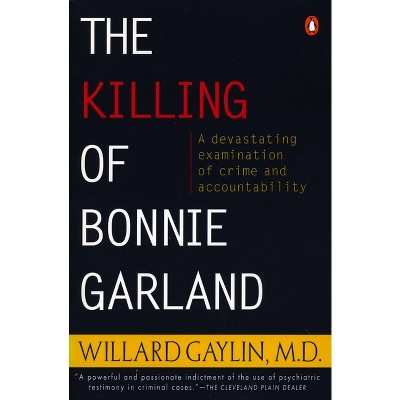About this item
Highlights
- We hold many assumptions about police work-that it is the responsibility of the state, or that police officers are given the right to kill in the name of public safety or self-defense.
- About the Author: Graham Denyer Willis is a University Lecturer at the Centres of Development and Latin American Studies and a Fellow at Queens' College, University of Cambridge.
- 216 Pages
- Social Science, Criminology
Description
About the Book
"We hold many assumptions about police work -- that it is the responsibility of the state, or that police officers be given the right to kill in the name of public safety or self-defense. But in The Killing Consensus, Graham Denyer Willis shows how in Saao Paulo, Brazil, killing and the arbitration of 'normal' killing in the name of social order is actually conducted by two groups--the police and organized crime--both operating by parallel logics of murder. Based on three years of ethnographic fieldwork, Willis traces how homicide detectives categorize two types of killing: the first resulting from 'resistance' to police arrest (which is often broadly defined), and the second at the hands of a crime 'family' known as the Primeiro Comando da Capital (PCC). Death at the hands of police happens regularly, while the PCC's centralized control and strict moral code among criminals has also routinized killing, ironically making the city feel safer for most residents. In a fractured urban security, where killing mirrors patterns of inequitable urbanization and historical exclusion on class, gender and racial lines, Denyer Willis' research finds that the city's cyclical periods of peace and violence can best be understood through an unspoken but mutually observed consensus on the right to kill. This consensus hinges on common notions and street level practices of who can die, where, how, and by whom, revealing an empirically distinct configuration of authority that Denyer Willis calls sovereignty by consensus"--Provided by publisher.Book Synopsis
We hold many assumptions about police work-that it is the responsibility of the state, or that police officers are given the right to kill in the name of public safety or self-defense. But in The Killing Consensus, Graham Denyer Willis shows how in São Paulo, Brazil, killing and the arbitration of "normal" killing in the name of social order are actually conducted by two groups-the police and organized crime-both operating according to parallel logics of murder. Based on three years of ethnographic fieldwork, Willis's book traces how homicide detectives categorize two types of killing: the first resulting from "resistance" to police arrest (which is often broadly defined) and the second at the hands of a crime "family' known as the Primeiro Comando da Capital (PCC). Death at the hands of police happens regularly, while the PCC's centralized control and strict moral code among criminals has also routinized killing, ironically making the city feel safer for most residents. In a fractured urban security environment, where killing mirrors patterns of inequitable urbanization and historical exclusion along class, gender, and racial lines, Denyer Willis's research finds that the city's cyclical periods of peace and violence can best be understood through an unspoken but mutually observed consensus on the right to kill. This consensus hinges on common notions and street-level practices of who can die, where, how, and by whom, revealing an empirically distinct configuration of authority that Denyer Willis calls sovereignty by consensus.From the Back Cover
"This is a picture of policing in modern Brazil. Denyer Willis does not paint for us lovely, quiet nights with quiet stars, with Jobim-like bossa nova echoes. It's not the playful joy of the beach at Ipanema. He transports us to violent places in São Paulo, where the military police and organized crime groups act in cycles of reflexive violence with impunity and both citizens and homicide detectives are fearful. Resisting arrest becomes a license for a murder by the police. Denyer Willis's detailed vignettes sketch a fascinating but disturbing up-close picture of non-democratic policing."--Peter K. Manning, School of Criminal Justice and Criminology, Northeastern University "Every once in a while a book comes along that blasts through conventional wisdom and upends the way we think about the basic organizing principles of society. Graham Denyer Willis's The Killing Consensus is just that book. A provocative and beautifully crafted exploration of the relations between police and criminals in São Paulo, Brazil, this book challenges the way that political scientists, sociologists, and anthropologists understand urban violence and who is responsible for its management in cities of the global south."--Diane E. Davis, Charles Dyer Norton Professor of Regional Planning and Urbanism, Harvard Graduate School of Design "Graham Denyer Willis dissects the relationships among state, society, police, and organized crime in São Paulo, capital of the richest state of Brazil. The book demonstrates that, beyond the legal norm, the regulation of who can live and who has to die is a task not only for the state but also for the moral system of the crime family known as the PCC. Willis reconstructs the steps of this intricate web of social and moral relations, shedding light on the crime-control dilemmas and violence in recent democracies and on the unfinished reforms of the police and justice institutions, a taboo subject in Latin America."--Renato Sérgio de Lima, Professor, Getulio Vargas Foundation, and Vice-President of the Brazilian Forum on Public Safety"Graham Denyer Willis offers us a powerful analysis of how homicide detectives in Sao Paulo decide whose deaths are worthy of investigation. For those who think that violence in Latin America is mainly caused by the absence of the state, and that democratization will inevitably produce states with monopolies of legitimate force, Willis has a message: think again. His portrait of sovereignty by consensus, in which state and non-state armed actors implicitly cooperate in the management of violence, generates new insights and raises fascinating questions about urban violence in Latin America and the Global South."--Anthony Pereira, Director of the Brazil Institute, King's College London
Review Quotes
"A groundbreaking new study that enhances our understanding of policing in Brazil... a much-needed and timely intervention in the field of policing and urban governance... This is a must-read book for those interested in understanding the rationale of police practices and alternative forms of sovereign power in urban contexts, in which some lives do not matter."--Jaime Amparo Alves "International Journal of Urban and Regional Research"
"An engaging and theoretically thorough interpretation of the public security challenge in urban Brazil."-- "Luso-Brazilian Review"
"The book is tightly written, the analysis interdisciplinary, and the questions raised by the author have profound implications for a host of academic fields."--Jeff Garmany "Latin American Politics and Society"
"Weaving in detailed observations from years of fieldwork, Willis's ethnography is both a cautionary tale about the cyclical nature of unregulated violence and a critique of the system that facilitates such an arrangement."-- "Survival: Global Politics and Strategy" (5/26/2016 12:00:00 AM)
About the Author
Graham Denyer Willis is a University Lecturer at the Centres of Development and Latin American Studies and a Fellow at Queens' College, University of Cambridge.Shipping details
Return details
Trending Non-Fiction












